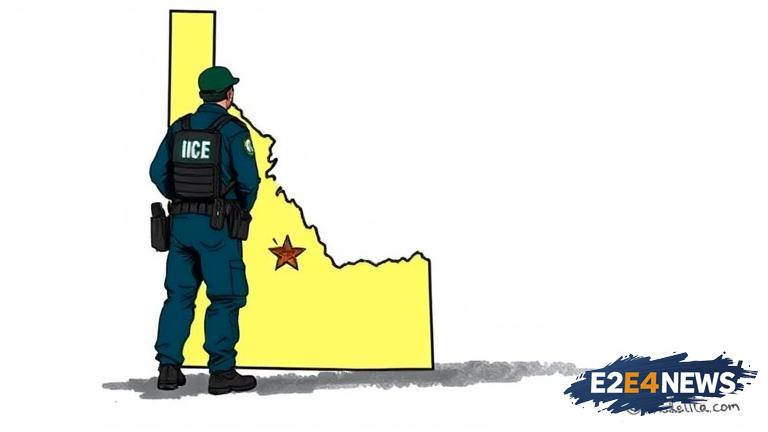A recent report has revealed that Idaho has seen a steep increase in ICE arrests and detentions, with the number of individuals taken into custody rising sharply over the past year. This trend has sparked concerns among immigrant communities and advocacy groups, who argue that the crackdown is having a devastating impact on families and local economies. According to the data, the number of ICE arrests in Idaho has increased by over 50% compared to the same period last year, with many of those detained being held in facilities outside of the state. The majority of those arrested are being charged with minor crimes, such as traffic offenses or misdemeanors, rather than serious felonies. This has led to accusations that ICE is targeting low-level offenders and separating families unnecessarily. The rise in arrests and detentions has also put a strain on local resources, with many communities struggling to cope with the emotional and financial impact of having family members detained. Advocacy groups are calling for greater transparency and accountability from ICE, as well as an end to the practice of separating families and detaining individuals for minor offenses. The issue has also sparked a wider debate about immigration policy and the role of ICE in enforcing federal laws. Many argue that the current approach is inhumane and ineffective, and that a more nuanced and compassionate approach is needed. The increase in ICE arrests and detentions in Idaho is part of a broader national trend, with many states experiencing similar rises in enforcement activity. However, the impact is being felt particularly keenly in Idaho, where the immigrant community is relatively small and tight-knit. The state’s rural areas are also being disproportionately affected, with many families relying on immigrant labor to work on farms and in other industries. The economic impact of the crackdown is also being felt, with many businesses struggling to find workers to fill vacant positions. The rise in ICE arrests and detentions has also led to an increase in anxiety and fear among immigrant communities, with many people living in fear of being detained or deported. This has had a chilling effect on community cohesion and social cohesion, with many people reluctant to report crimes or access public services for fear of being targeted by ICE. The issue has also sparked a backlash among some residents, who argue that the crackdown is necessary to maintain public safety and enforce federal laws. However, many others argue that the approach is heavy-handed and inhumane, and that a more balanced and compassionate approach is needed. As the debate continues, it is clear that the issue of ICE arrests and detentions in Idaho is complex and multifaceted, and that a comprehensive and nuanced solution is needed. The state’s lawmakers and community leaders must work together to find a solution that balances the need to enforce federal laws with the need to protect and support immigrant communities. This may involve advocating for policy changes at the federal level, as well as providing support and resources to those affected by the crackdown. Ultimately, the goal must be to create a fair and compassionate immigration system that supports the needs of all members of the community, regardless of their immigration status. The rise in ICE arrests and detentions in Idaho is a wake-up call for the state’s leaders and residents, and a reminder of the need for a more nuanced and compassionate approach to immigration policy. By working together and advocating for change, it is possible to create a more just and equitable system that supports the needs of all members of the community.





